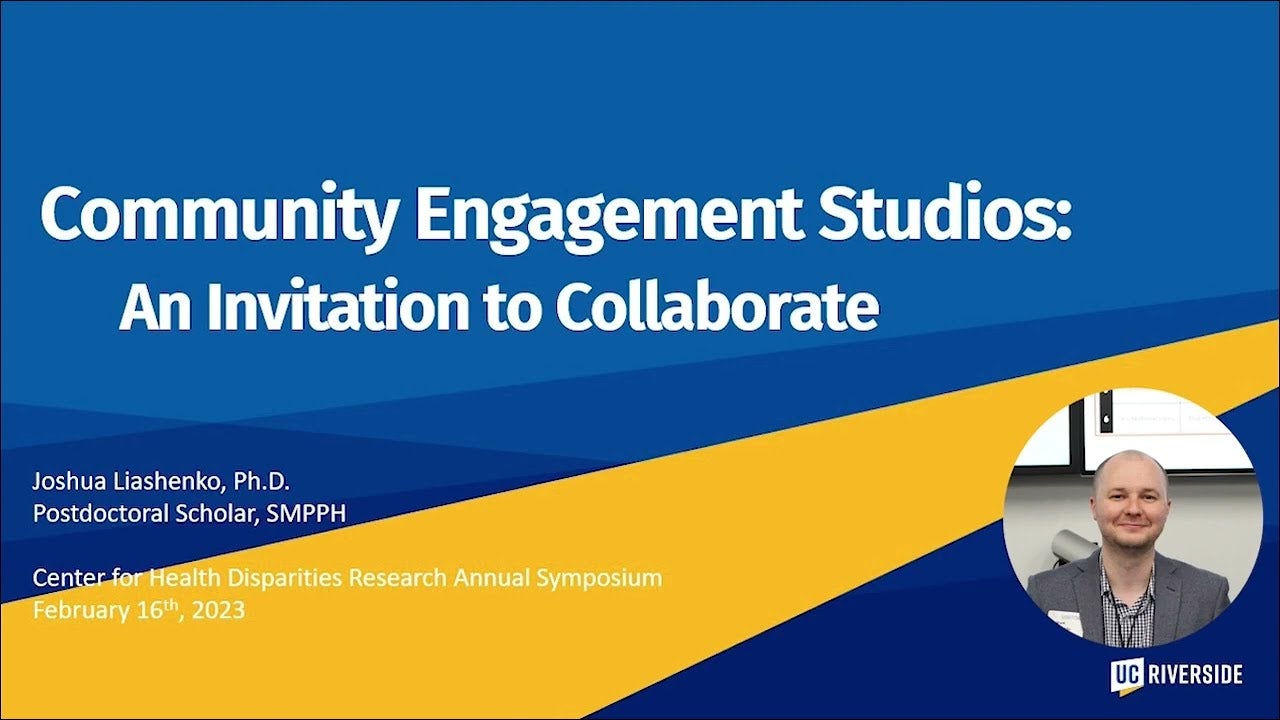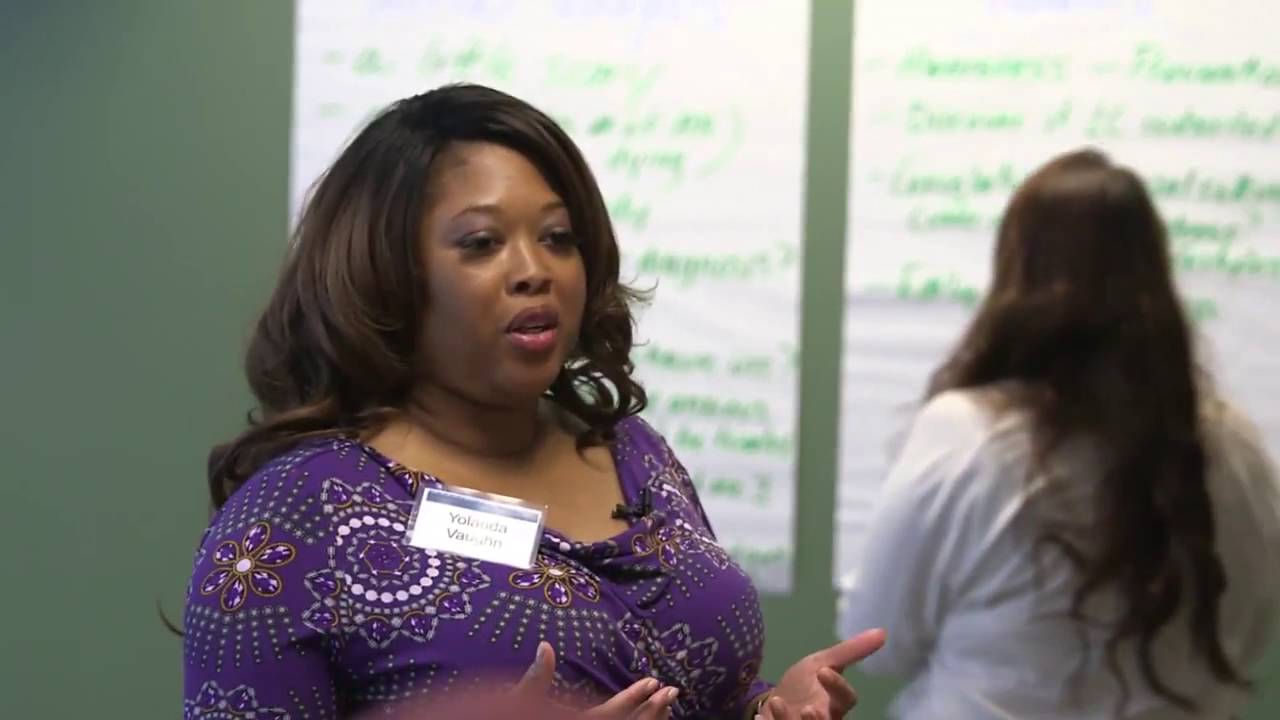
Community Engagement Studios
Overview
A Community Engagement Studio (CE Studio) is a virtual meeting structured to get meaningful input from community experts to inform research from design, implementation and translation of discoveries. Here at HDR@UCR members of the Community Engagement and Dissemination Core (CEDC) facilitate and work with both researchers and community experts to provide a co-learning experience, where researchers ask questions and community experts provide feedback.
For researchers, a CE Studio serves as a consultative listening session for those interested in getting input on their community-engaged work from a panel of community experts who will provide feedback to enhance the planning, design, implementation, translation, or dissemination of research. The benefits of a CE studio often include changes in knowledge and attitudes and an enhanced community-centered approach for community-based participatory research and community-engaged research.
For community experts, a CE Studio serves as a method of engagement that asks for project-specific input and in turn helps one gain a better understanding of research in general. The CEDC team will recruit and train community experts before facilitating the virtual CE Studio meeting. Participating in a CE Studio can provide various advantages to the community members. This includes enhancing the perception of the value, relevance, and acceptability of the research they are involved in. It can also help to feel more engaged and appreciated in the research process, leading to a better understanding of the research findings and their potential impact on the community.
Who can request a CE Studio?
CE Studios are FREE of cost and available to all colleges and departments at UC Riverside including:
- UCR faculty
- UCR post-docs
- UCR fellows
- UCR graduate students
Those who are interested in receiving feedback from their population of interest on the relevance and feasibility of their research ideas, please submit a request for a community engagement studio.
Who can be a community expert?
Community experts can be members who identify as but are not limited to:
- Patients, caregivers & health care providers
- Community members
- Other non-researcher stakeholders
- Those interested in providing feedback to help shape research in their community
Those who are interested in becoming a community expert please complete the interest form.
CE Studio Breakdown
| Purpose | Inform development, implementation, or dissemination of research |
| Approach | Interactive discussion where the researchers focus on active listening to get the most feedback |
| Participants | Interactive discussion where the researchers focus on active listening to get the most feedback |
| Facilitator | CEDC team members not involved in the research project will moderate discussion by asking questions |
| Preparation | For researcher – coaching from CEDC team For community experts – orientation day of CE Studio |
| Compensation | Community expert honorarium |
| Use of input | Participant comments and recommendations are summarized by the CEDC team to help researchers interpret and apply recommendations |
Testimonials
"Our project benefited greatly from the input from the diverse stakeholders who were part of our CE Studio. We needed input and direction on how to redesign our study given COVID-19 setbacks and members of the studio offered our team direction and steered us on the path to success. I greatly appreciated the commitment of the CEDC team to organize the CE Studio and invite community experts with the right expertise."
UCR Researcher who requested CE Studio
"One of the the community experts was in tears thanking the student researchers for doing the work and seeing the value in obtaining feedback from the community to shape their research project."
CEDC team member on facilitating CE Studio
"Thank you for the invite, it was surely an experience to have. I need to explore more community engagement and involvement because it was pretty cool."
Community expert after attending CE Studio

